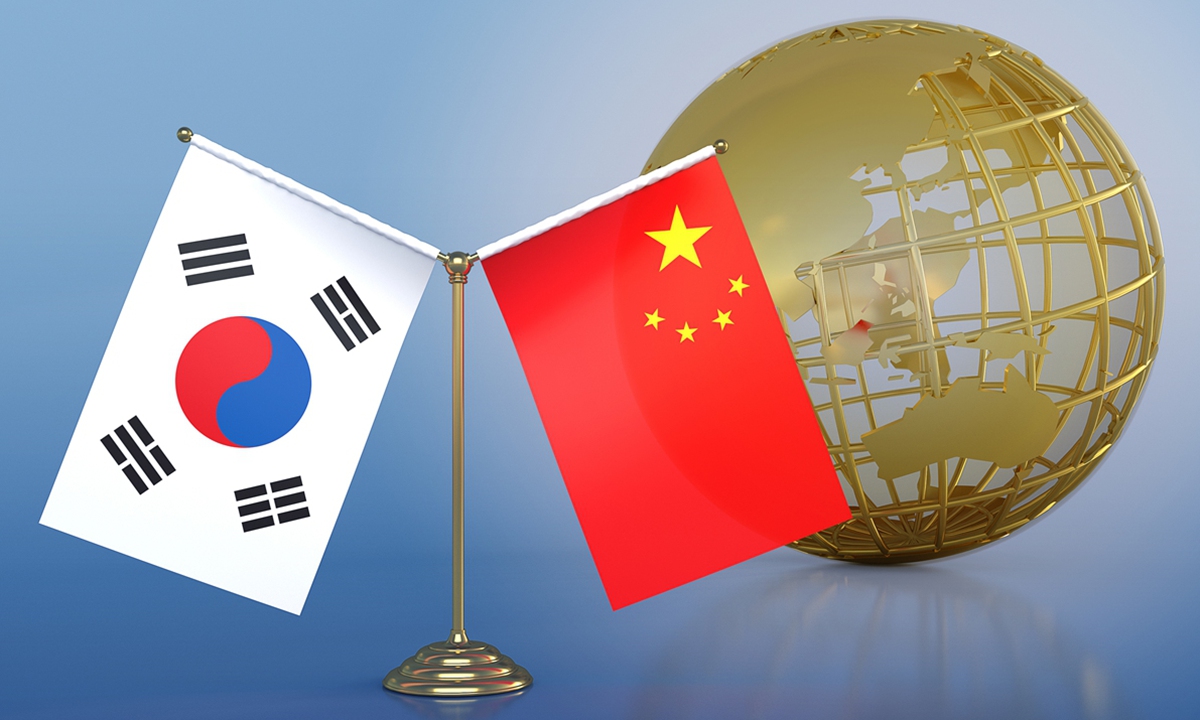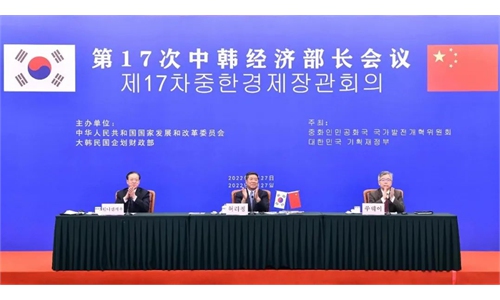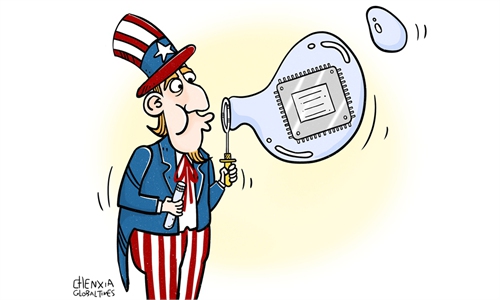Chinese, S.Korean officials seek to strengthen supply chain cooperation despite US pressure
Seoul faces US pressure, but relies on China's market: experts

China South Korea Photo:VCG
During a visit by China's top legislator Li Zhanshu to South Korea, officials from both sides exchanged views on strengthening supply chain cooperation, a signal of the strong complementarity of the two countries, especially in the chip sector, despite efforts by the US government to push for a decoupling in the supply chain.
During the "official goodwill visit" to South Korea from Thursday to Saturday, Li, chairman of China's National People's Congress Standing Committee, said that economic and trade cooperation are important highlights of bilateral relations, according to the Xinhua News Agency on Sunday.
During his visit, Li met with South Korean President Yoon Suk-yeol and held talks with South Korea's National Assembly Speaker Kim Jin-pyo, the Xinhua report noted.
Li urged the two sides to ensure the security and stability of industry and supply chains, as well as jointly uphold the rules-based free trade system.
Kim said that South Korea wants the two sides to further strengthen communication and cooperation over stabilizing supply chains, the Yonhap News Agency reported.
Although Kim didn't state explicitly that the country would stand against external pressure to safeguard its business links with China, his expressions were read by analysts as a clear signal that South Korea would by no means give up the Chinese market for its semiconductor industry and become the US' tool to crack down on China's tech rise.
The US government has been trying to pressure Asian economies, including Japan and South Korea, into setting up a so-called Chip 4 alliance to exclude China's chip supply chains. But the actual progress of the alliance has been very slow. A year after the idea was proposed, plans have not been finalized even for a preliminary meeting.
Meanwhile, the Financial Times cited Kyung Kye-hyun, the head of Samsung Electronics' semiconductor business, as saying that the South Korean government should seek understanding from China first before having negotiations with the US.
Bai Wenxi, chief economist of IPG China, said that the delay of the chip alliance reflects a paradox faced by South Korea: the country can't decouple from the US in terms of semiconductor technologies, but neither can it reduce reliance on China's huge market.
"It wants to maintain stable economic and trade relations with China and strengthen the two countries' cooperation, while maintaining South Korea-US relations to safeguard security," Bai told the Global Times on Sunday.
According to Zhang Xiaorong, director of the Beijing-based Cutting-Edge Technology Research Institute, South Korea is betting on China for its chip industry. South Korea has invested about $70 billion in China's chip market, not to mention huge exports of chip products to China.
According to the Korea International Trade Association, out of South Korea's $69 billion memory chip exports in 2021, exports to China took up about 48 percent.
"South Korea will use delays as a tactic. It will postpone talking with the US, because it can't say no to US requirements, but it doesn't want to offend China either," Zhang told the Global Times.
Xiang Ligang, an independent tech analyst, told the Global Times that South Korea might halt expanding chip facilities in China under US pressure, but the existing capacity will operate well, and its chip trade with China will remain normal.
Besides the topic of supply chain cooperation, officials also talked about the progress of the China-South Korea free-trade agreement (FTA) negotiations. During the visit, Li urged the two countries to conclude the second phase of FTA negotiations at an early date.
Kim also said that South Korea wanted follow-up FTA negotiations to make progress as soon as possible.
China's Ministry of Commerce (MOFCOM) said recently that China and South Korea have made substantial progress in second-phase China-South Korea FTA talks, and the two sides have held nine rounds of formal negotiations.
Xiang noted that it can be expected that both China and South Korea will actively push the FTA negotiations, as both countries seek to boost trade.




